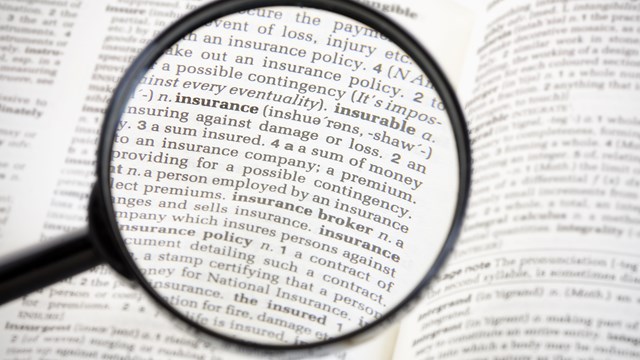Long before Airbnb became a household word, attorney Frank Flynn was dealing with condominium owners who thought that turning their units into a bed and breakfast was a great idea. “It’s a terrible idea. You get all these people coming and going, wandering into the building,” says the managing partner of the Boston-based Flynn Law Group.
But in a city like Boston, where even the most profligate among us may shed a tear or two at hotel room prices, the homesharing trend has grown by leaps and bounds, with more co-op and condo owners than ever renting out their units to short-stay vacationers —and pocketing more than a few extra bucks in the process.
Led by Airbnb, homesharing has had a steady ascent over the last eight years or so since the company’s founders stumbled on the idea of renting out residential units in popular vacation destination cities to travelers in town both for business and recreation. As lucrative as the business can be for homeowners, it is also fraught with huge risks, including breaking proprietary leases, breaking state and city laws and facing significant uncertainty with regard to issues of insurance and liability.
A Risky Money-Maker
“Liability? Oh yeah. You’ve got strangers in your building. You don’t know if they’ve been screened. What if they attack somebody?” Flynn asks. “The liability could be huge.” And that’s just the beginning of the potential liability for owners and associations.
The popularity of joining Airbnb continues to climb, despite the fact that many, if not most, condominium documents prohibit short-term rentals. For the most part, it seems that people have been willing to turn a blind eye to potential problems for participating unit owners and their associations. In a small building, for example, where the neighbors all know one another and a fair number are renting out to Airbnb visitors without incident, the practice could go on undisturbed for years.
In other instances, the appeal of neighbors renting out to strangers loses its charm rather quickly. One major issue is security. “You can imagine all the problems that could come with unscreened people treating the place like a hotel,” Flynn says.
In addition, there may be risks for the Airbnb customers themselves. Residential buildings are not really designed as hotels, which have certain safety features in them that regular residential buildings may not have. These include fire alarm systems or evacuation plans for the building as a whole.
Risk vs. Reward
Despite the fact that participating in Airbnb may mean a lot of trouble for unit owners, sometimes the financial rewards are so great—or so needed—that those troubles go ignored. In these instances, it’s also important to consider the liability risks involved. What happens if something goes wrong— and who’s ultimately responsible for making it right? These are important questions that homeowners need to understand before posting their condo unit profiles and stocking up on guest towels.
The first hurdle is a big one: homeowners’ insurance policies are not designed to cover business enterprises, says John Gilligan, personal insurance lines manager for Rogers & Gray Insurance in South Dennis, Massachusetts. “Each unit owner should have some sort of policy in place to protect them, their contents, what their responsibilities are in accordance with the (condominium’s) bylaws,” he explains. “Whether or not that unit is rented, and how it is rented, is going to depend on what type of policy that we’d be looking at in the market place for someone.
“However, if and when any use is changed, that certainly is a discussion that needs to be had with your agent or company, to understand if your policy can and would respond to that type of usage change” from strictly owner-occupied to rental.
“Short-term rentals are often not allowed for in most situations for underwriting a homeowners’ insurance policy, because most are aimed at being an owner-occupied unit,” Gilligan cautions.
Because the personal liability part of homeowners’ policies typically excludes or restricts coverage for business activities, there’s a potential for unit owners being left uncovered when something happens. “You really should be checking with your insurance agent to make sure it’s not jeopardizing coverage to you and liability,” Gilligan says. It’s also important to know exactly what’s covered under the policy. “There may be things you think are covered that are not covered.”
Owners should think beyond simply the “what” of insurance coverage, too. “How something is damaged could also come into play,” Gilligan says. “If you’re thinking about how it happened —even if it’s accidental—is there coverage for that type of accident? If someone else is using your home, there’s a lot of ways someone may damage something because they’re not as careful with your things as you are.”
Unfortunately, the uncertainty that surrounds Airbnb practices in general translates into similar uncertainty with insurance coverage. The temptation for some unit owners may be to quietly go about their rental business without informing their insurance carrier or broker. But it’s important to be honest about the situation, “because the worst case scenario is that you think you have coverage, and you don’t,” says Mike Duffley, commercial sales manager for Rogers & Gray. “That insurance policy is a contract,” he advises. “If there are misleading or omitted facts, the company could potentially deny coverage.”
That’s not to say that no insurance coverage exists for any unit catering to the Airbnb-type market. “There are, especially in resort areas, some companies that are tolerant of some rentals, and they do allow for some short-term rentals,” Gilligan says. “Each company is going to have their own guidelines on what specifically they would allow, whether it’s time frames, or how that short term rental is found—advertising through a realtor, or through a website —and they’re going to assess that risk and determine whether or not it meets the criteria for their program.”
Beyond Your Four Walls
And then there’s the liability risk faced by the building as a whole. “When you’re a part of the association, it’s not just about you and your unit,” Duffley says. “Other unit owners want to protect what they have as an investment—and their lifestyle and their peace of mind. The bylaws are written specifically to address that.” And, as mentioned, most bylaws prohibit short-term rentals.
“At one property, about 15 years ago, we had a unit owner who was renting and creating havoc,” Flynn recalls. “The condo docs were so old they did not outlaw somebody running a hotel out of their unit.” Flynn’s answer: amend the documents, and then pursue unit owners who don’t comply with them. “Most condo docs do forbid running a business out of your unit. I like to make sure it’s specifically outlawed.
“When you have people coming in and out, you don’t know who they are,” Flynn explains. “You could be generating claims under the master insurance policy.”
“From an insurance perspective, that’s something that is paramount—what do the bylaws actually state, and what does the master policy state in regards to how it would respond if there was a renter in a unit that had otherwise been deemed owner occupancy,” Duffley says.
As difficult as it may be to broach that issue, it may be a necessity to protect the rest of the association’s residents, both from the risk of unknown guests and the risks of having an insurance policy terminated for the whole building. “Especially if there’s a large number of these in one building, an insurance carrier might say, if that’s what’s going on, we’re not going to the renew the policy the following year,” Duffley cautions. “It could end up going to a place where it would drive premiums up because the marketplace wouldn’t be as broad; there wouldn’t be as many options.”
Airbnb itself tries to mitigate risk for those who join its service with its Host Protection Insurance that “provides hosts (lessors) with $1,000,000 of general liability insurance protection for stays occurring in the United States.” But that policy may not kick in until after the homeowner’s policy pays out.
Stay On Top of Things
It is a lot to consider for a young couple in Boston who just want to help cover their mortgage costs by renting out the sofa bed for a few nights each month and it is a lot to consider for boards who want to keep their residents happy. The important thing to remember is that money is changing hands, meaning it is a business.
For both unit owners and board members, it’s important to “know what’s going on in your building,” Duffley says. “Be aware; make it part of your newsletter, or your annual meeting, if there’s something you’re aware is going on. No one is shunning it or calling it a bad thing, but if the association is involved with this, make sure they’re aware of the potential repercussion, if there are any, as to how their insurance company would respond in the case of a loss.
“To be well-informed is important —to know what’s going on in your building and to have the conversation with your agent. That agent should be able to, in reviewing the bylaws and speaking with carriers, give you a firm understanding of how a claim would be responded to if someone was renting out the property.”
And since trustees are making decisions that affect all aspects of the property, including insurance issues, it’s essential that they’re covered by Directors & Officers (D&O) insurance, Duffley says. “They are the decision-makers … and they should be aware that it’s them who will have the finger pointed at them should they not address these things. It’s important for them to do due diligence, and have a policy in place to cover the liability arising out of their decisions or lack of decisions.”
Elizabeth Lent is a freelance writer and a frequent contributor to New England Condominium. Associate editor Pat Gale also contributed to this article.







Leave a Comment